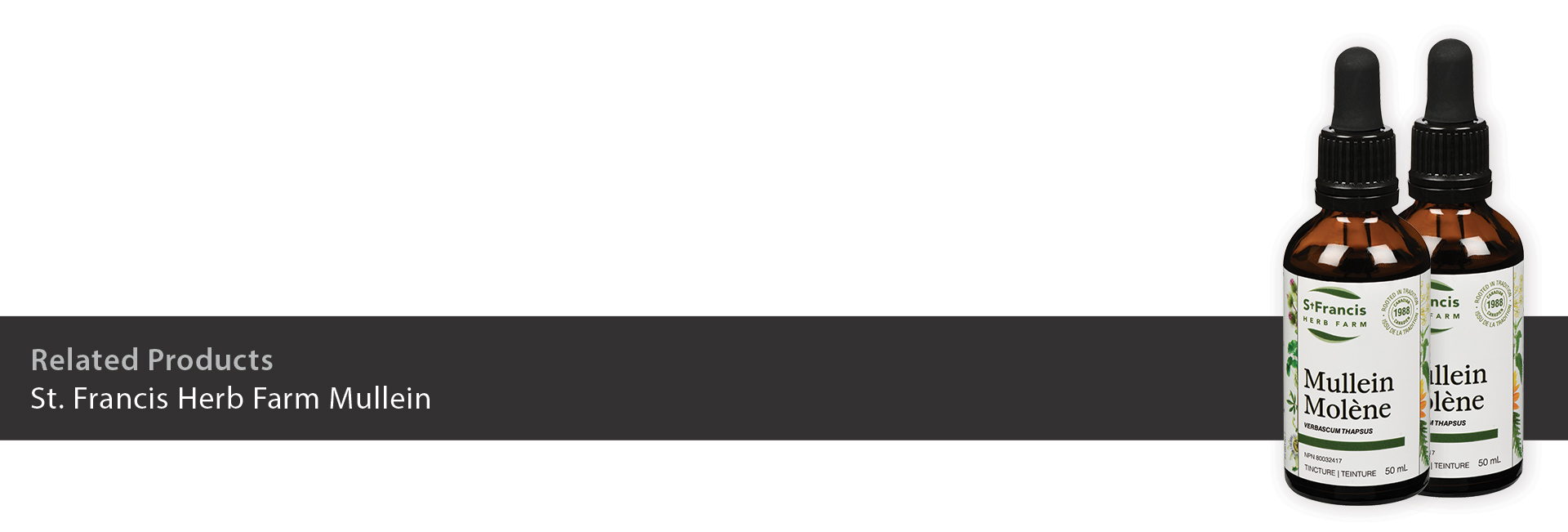

How Herbs Can Help with Wildfire Smoke Exposure
Air quality is a major determinant of respiratory health, and this year, Canada faced its worst wildfire season on record – affecting communities from coast to coast. This has led to an uptick in respiratory issues and impacted the lung health of those exposed. We examine a time-honoured herb that can help to soothe airways and offer healing effects to respiratory tissue – mullein!
Canada has a reputation for excellent air quality, but it is increasingly threatened by smoke from wildfires, which are becoming more frequent and intense due to climate change. Wildfire smoke can travel long distances, exposing those nearby and far away to extremely small particles that pose a specific health risk known as PM2.5. Even after visible smoke clears, these particles can remain in the air and become deposited deep in the lungs.
Exposure to these particles has been shown to increase respiratory discomfort and illness, especially among vulnerable health groups. There is growing evidence of their effects on the cardiovascular system and other aspects of health.
Did you know? Health effects can occur even at low concentrations, including those below current Canadian Ambient Air Quality Standards.
While there are precautions that can be taken to mitigate impacts and risks, plant medicines can also help to soothe symptoms of smoke exposure and even reduce potential damage to the respiratory tract.
Mullein (Verbascum thapsus) has traditionally been used for lung conditions with a long history of use for helping to ease symptoms from respiratory issues and stimulating the clearing of mucus from airways.
It is a “mucilaginous” herb, meaning that it has a high content of polysaccharides that can soothe respiratory tracts irritated by the effects of wildfires on air quality.
In the case of congestion, mullein has exceptional expectorant properties that help to clear mucus from the lungs and relieve chest complaints such as cough, congestion, and irritation.
It is also naturally rich in antioxidants, including vitamin C and flavonoids, which offer a protective effect on cells.
“No other herb has as much utility for lung conditions, in my view, as Mullein does. It is what is termed a trophorestorative, an herb that aids in rebuilding damaged lung tissues and helps to restore normal function, whether from chronic self-induced causes like cigarette smoking, or from exposure to periodic noxious influences like wildfire smoke. I have discovered this effect in both material (tincture) and in homeopathic doses. Mullein is truly remarkable, versatile, and valuable lung medicine.” – TERRY VANDERHEYDEN, ND, RH
Historically, mullein has been prepared in teas, topical applications, (ironically) smoke for inhalation, and in more concentrated forms such as tincture extractions. St. Francis Herb Farm uses mullein in several of their formulas, including a certified organic single-herb Mullein Tincture and as the key ingredient in their RespiraCleanse® formula along with lung health-supportive herbs horehound and ginger.
RespiraCleanse® helps to quell coughs, both chronic and acute, especially dry, persistent, irritating coughs with the benefits of mullein – as well as ginger, traditionally used in Herbal Medicine as an expectorant and anti-tussive to help relieve bronchitis as well as coughs and colds.
What else can you do to protect your health?
- Check the Canadian Air Quality Health Index for your area and heed warnings.
- Stay indoors and close the windows.
- Reduce physical activity.
- Wear “particulate respirator” masks.
- Understand your risk and learn about signs of distress.
- Use a portable, high-efficiency air cleaner with a HEPA filter.

